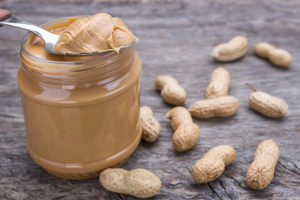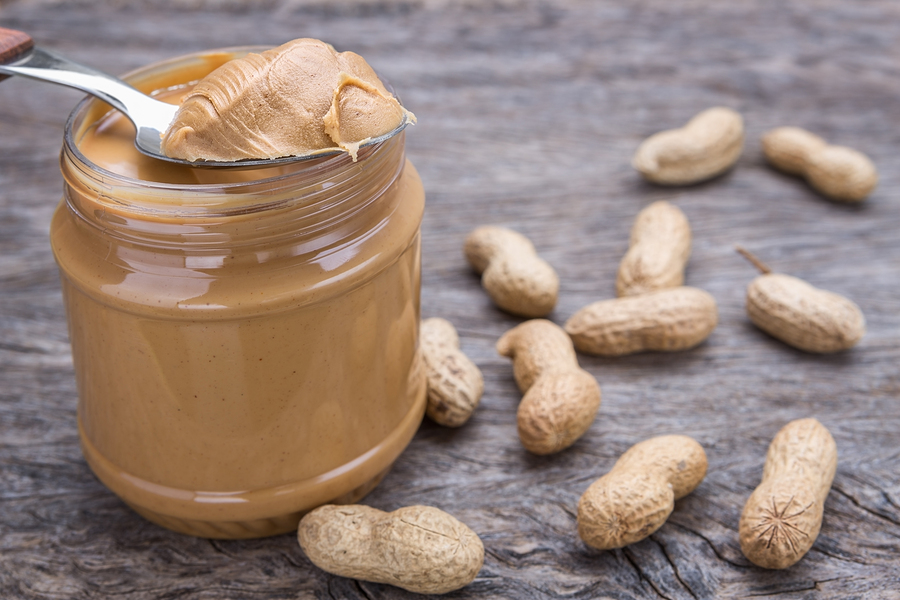
Does your parent have fond memories of going to baseball games and purchasing a bag of warm, roasted peanuts? Do they think a game of cards isn’t the same without a bowl of peanuts on the table? Or, perhaps they love anything with peanuts in it. If your elderly parent is among the millions of Americans who love peanuts, March is the month for them. It’s National Peanut Month!
A Little About Peanuts
Peanuts are a kind of nut that comes from South Africa—well, sort of. Technically, they’re not nuts at all, but a kind of legume. They grow underground and are sometimes called goobers, earth nuts, or groundnuts.
In the United States, people eat very few raw peanuts. The majority of peanuts are consumed as roasted peanuts, salted whole peanuts, and in peanut butter. They are also used to make peanut oil, peanut protein, and peanut flour, as well as being used in lots of desserts and savory dishes.
Peanut Nutrients
Peanuts are an excellent source of protein. A serving of peanuts (about 100 grams) contains 25.8 grams of protein. That’s nearly as much as a 3-ounce serving of beef steak, which has 29 grams of protein. However, peanuts may be a better choice because they contain mainly monounsaturated fat and polyunsaturated fat while beef contains saturated fat. Eating too much saturated fat can raise cholesterol levels. Therefore, the American Heart Association recommends no more than 6 percent of a person’s daily calories come from saturated fat.
In addition to being a great source of protein, peanuts contain many other nutrients, including:
- Copper: Getting enough copper is important to heart health.
- Niacin: Niacin, or vitamin B3, is another nutrient linked to heart health.
- Vitamin E: Vitamin contains antioxidants.
- Thiamin: Thiamin is another B vitamin. It is necessary for the body to turn carbs into energy.
- Phosphorous: Phosphorous is needed to keep tissues healthy as well as for building new tissues.
- Magnesium: Magnesium is another mineral that is believed to keep the heart healthy.
As healthy as peanuts are, there is such a thing as “too much of a good thing.” Peanuts are high in calories, so they should be incorporated into your parent’s diet with care. Too many of them could lead to unwanted weight gain.
If your parent likes peanuts, senior care can help them to include peanuts in a healthy diet. Senior care providers can make meals that include peanuts, like Asian and South African dishes. They can also bake desserts that use peanuts and peanut butter. Senior care providers can also offer the older adult a handful of nuts now and then to enjoy as a snack.
Sources
https://www.healthline.com/nutrition/foods/peanuts
https://www.everydayhealth.com/news/eat-peanuts-live-longer/
https://www.livestrong.com/article/533434-how-much-protein-does-meat-have/
https://www.heart.org/en/healthy-living/healthy-eating/eat-smart/fats/saturated-fats

